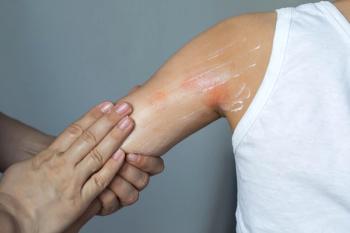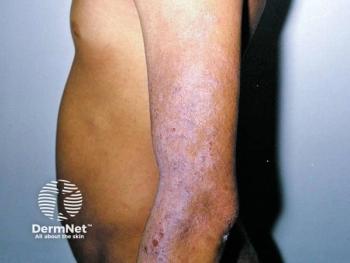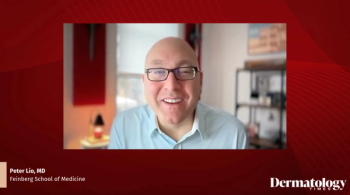
AAD's SKIN program mission succeeding
San Francisco ? Through a series of communications programs introduced in the past, the American Academy of Dermatology (AAD) has been successful in improving public perceptions of dermatology.
Now, with more nondermatologists becoming involved in skincare treatments and offering dermatologic procedures, the AAD has launched a new initiative to strategically position dermatologists as the experts to seek when help is needed for the diagnosis and treatment of skin, hair and nail disease, according to Roger I. Ceilley, M.D., speaking at the 64th Annual Meeting of the American Academy of Dermatology in March.
The new program is known as SKIN (Skin Knowledge and Information Network).
Rolled out in November 2005, it uses a variety of resources to supplement other communications programs and activities. Taking an innovative path, it will also reach out to specific segments of the population, including children, mothers, health club members and pharmacists, in order to fulfill its objectives, which are to:
"A public safety issue is arising as more and more nondermatologists are offering services for some type of skin care or dermatologic procedures. Therefore, the goals of our new educational campaigns will be to point out the distinction between a dermatologist and nondermatologist to both keep our specialty high on the radar screen and assure patients receive safe and effective skincare," says Dr. Ceilley, clinical professor of dermatology, University of Iowa, Iowa City.
Public awareness, specialty competency
SKIN will use public relations programs, patient education materials and other print media to increase public thinking that good care of the skin, hair and nails is important for overall health and appearance and should be trusted to a dermatologist who is the physician expert. However, its success will depend not only on raising public awareness, but on the ability of the specialty to deliver the necessary care. The latter issue also represents a major challenge, Dr. Ceilley says.
"The worst things that can happen are that we will be unable to take care of the patients when they come in or that their care will be relegated entirely to a physician extender. Therefore, it is also important that we develop programs to ensure an adequate supply and distribution of dermatologists, use nurse practitioners and physician assistants appropriately, continue with our education so that we remain the best, and maintain our high ethical standards," he explains.
Dr. Ceilley also reviews the various AAD public service programs developed over the years to improve public perceptions of dermatology, and he demonstrates their positive impact by presenting results from AAD public opinion surveys.
"Whereas in the 1980s dermatologists were known primarily for treating acne, there was a shift in public perception in the next decade and thereafter when dermatologists became increasingly recognized for their expertise in the diagnosis and management of skin cancer, eczema and psoriasis," Dr. Ceilley says.
Newsletter
Like what you’re reading? Subscribe to Dermatology Times for weekly updates on therapies, innovations, and real-world practice tips.












